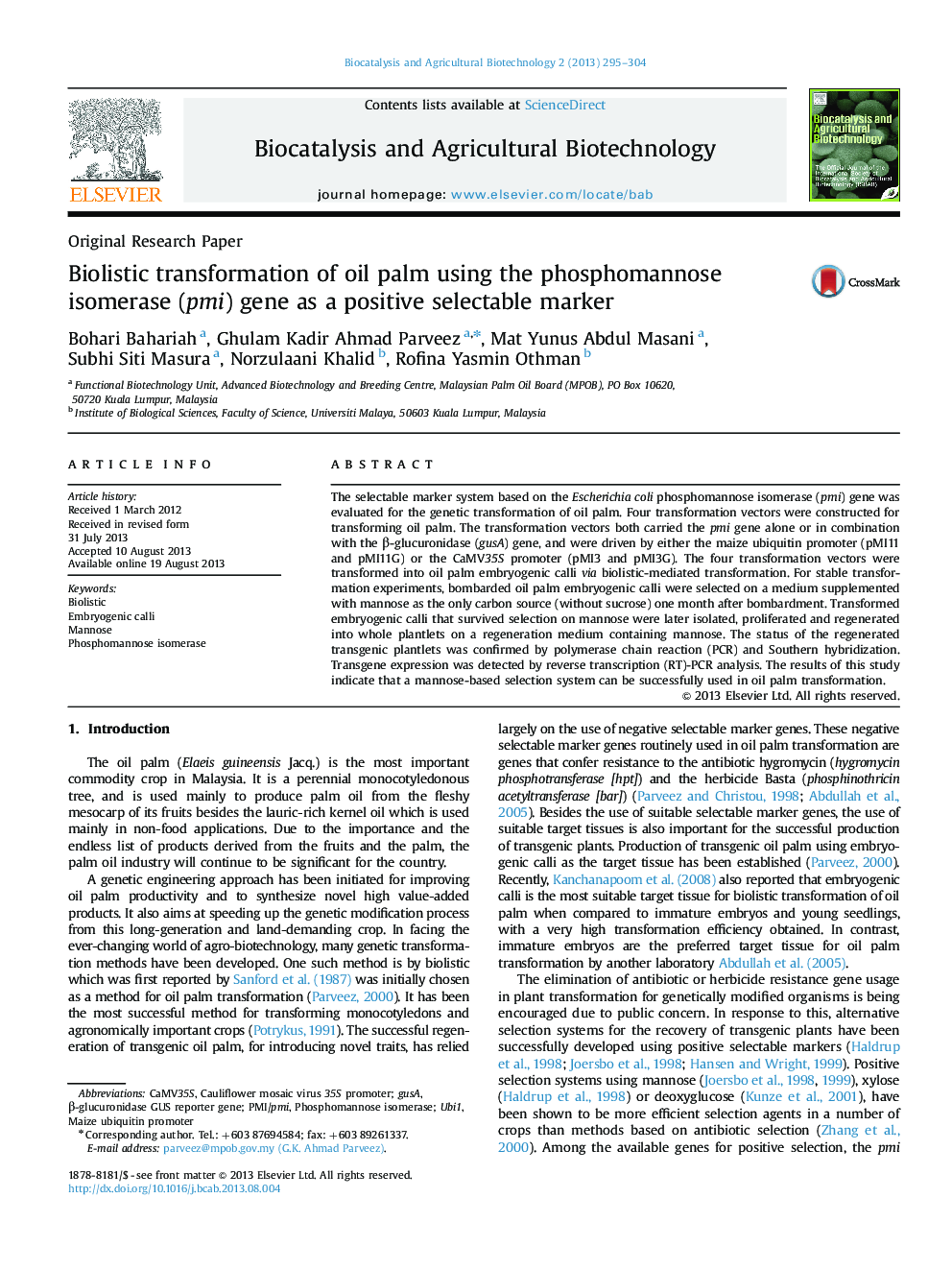| Article ID | Journal | Published Year | Pages | File Type |
|---|---|---|---|---|
| 2075669 | Biocatalysis and Agricultural Biotechnology | 2013 | 10 Pages |
The selectable marker system based on the Escherichia coli phosphomannose isomerase (pmi) gene was evaluated for the genetic transformation of oil palm. Four transformation vectors were constructed for transforming oil palm. The transformation vectors both carried the pmi gene alone or in combination with the β-glucuronidase (gusA) gene, and were driven by either the maize ubiquitin promoter (pMI11 and pMI11G) or the CaMV35S promoter (pMI3 and pMI3G). The four transformation vectors were transformed into oil palm embryogenic calli via biolistic-mediated transformation. For stable transformation experiments, bombarded oil palm embryogenic calli were selected on a medium supplemented with mannose as the only carbon source (without sucrose) one month after bombardment. Transformed embryogenic calli that survived selection on mannose were later isolated, proliferated and regenerated into whole plantlets on a regeneration medium containing mannose. The status of the regenerated transgenic plantlets was confirmed by polymerase chain reaction (PCR) and Southern hybridization. Transgene expression was detected by reverse transcription (RT)-PCR analysis. The results of this study indicate that a mannose-based selection system can be successfully used in oil palm transformation.
